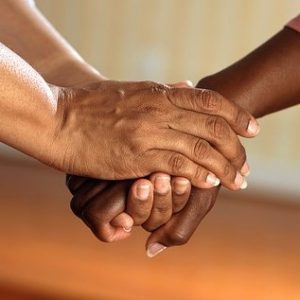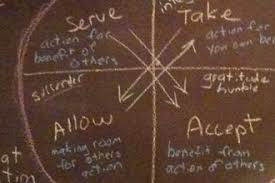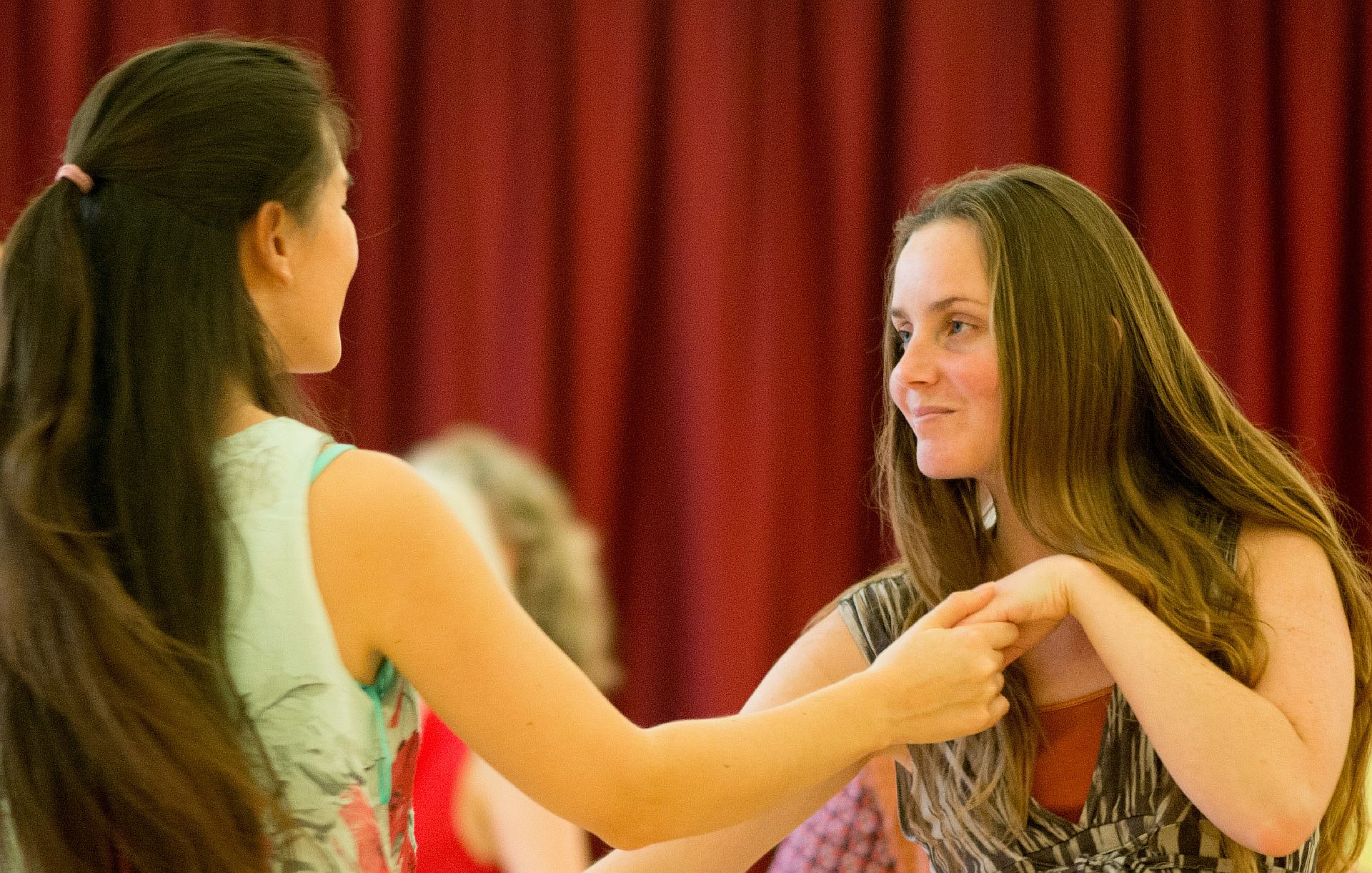(Julia Hancock – www.heartnova.com – October 2018)
Eroticism, choice and change; the three are intimately related. Firstly, some reflections on the meaning of erotic. The word comes from the Greek, Eros, pertaining to love and desire. Dictionary definitions describe erotic as arousal to sexual love, desire and excitement. I like that Wikipediea includes "a philosophical contemplation concerning the aesthetics of desire, sensuality and romantic love". It's to this broader concept of eroticism, or eros that I am referring.
In many animals sexuality seems to function primarily as a procreative activity, and the survival of the species. There are exceptions however, for example the Bonobo monkey, who is especially known for their promiscuity and sexual appetite, including same sex relations and sex between adults and young. ("Sex at Dawn, how we mate, why we stray and what it means for modern relationships" by Christopher Ryan and Cacilda Jetha is a fascinating study of mammals sexual habits and our evolution as sexual human beings.) In humans recreational sex enables the erotic to be an aspect of human creativity. This possibility I believe has been a major aspect of our evolution; from primitive to creative beings. The capacity for us to feel erotically charged leads to individual self-expression (of our sexuality, and in dynamics of a non sexual context), recognition and awareness and is potentially a satiating and transformative human experience. Tantra has long postulated on human sexuality as life-force experienced and transformed from the carnal to the sublime within the body and consciousness.
What went wrong?
All healthy newborns, and children are born as fully sentient, erotic beings; receptive to reach out and explore the world they inhabit through their senses. Trauma and conditioning come to each of us in a variety of ways, and we learn coping and survival strategies, often developing ways to feel less and to protect ourself from the intense pain and sometimes real live threats. Conditioning will get us if trauma doesn't! This can come via care-takers, parents, education, culture and religion. Either way most if not all of us have experienced something which causes blocks in our system, and when pain is blocked from feeling, so too is access to pleasure. It's all happening in the pathways of our nervous system. Habitual ways of being, such as never asking for what we really want, or over-giving to please another, become engrained in behaviour, and reflected in the neural pathways of the brain. We literally carve out a way of being for ourself which once worked, but perhaps no longer serves us.
We may have desire for greater feeling, sensation, sensuality, pleasure, but how can we get there? Especially in erotic experience, we tend to revert back to old ways of being. Why? Because it's safe! If we want to feel more pleasure, we must feel open to also experience the pain which may have long been suppressed. We can decide intellectually we want change, however this will not create lasting affect. Old habits die hard! Because the neural pathways are so well established (we've been practicing these habits most of our life!) we literally cannot avoid going back into these forged ways of being. They are embedded in our autonomic nervous system. We need to change at a deep level, for our neurons to create new pathways. As Bruce Lipton says, neurons that fire together wire together." This will not happen from a one-off intense experience, or even in a "life-changing workshop", but will only occur through practice. If you want to get good at something, practice it. Changing our personal habitual behaviour patterns are no exception!
How to enable lasting change to behaviour patterns and habits, and create more eros and pleasure:
- embodiment: first we need to be aware that we inhabit a body as well as a mind, sensations and emotions happen in the body and must be felt to be transformed
- slowing down and noticing, we can develop personal awareness of our own behaviour, and our patterns, and feel our emotions
- allowing difficult feelings such as shame, fear, loathing to be there if they are, and to accept them
- to develop self-compassion. This could be the most radical, transformative act we can ever develop!
- to make new choices, whist being in a calm, felt-sense of the body
- realise what we want to let go of, and what might feel good to create more of, and set intension
- practice, practice, practice! In life, daily.
- develop self-care practices that work for you (exercise, nutrition, meditation, self-pleasure practice, co-counselling, other?)
- know that whatever your experience of your sensuality and sexuality you are not broken!
- realise you have choice
- get support, groups or private sessions (or more intensive therapy if needed) can be invaluable in creating a container for you to initiate the change you want
In her book "Come as you are" sex educator Emily Nagoski explains that our nervous system is made up of an "accelerator" (sympathetic nervous system) and a "brake" (parasympathetic nervous system) and this acts a a "dual model". This is reflected in our sexual response and arousal, we each have a sexual accelerator and a sexual brake. How these manifest is individualised according to culture, conditioning and experience, but the mechanics are universal. Put simply to feel more pleasure we need to up the accelerator (whatever turns us on in our particular sexual preferences), and decrease the brakes (whatever turns us off!) All this is all beyond our conscious control, but we can understand what works personally for us in terms of context. As Emily emphasises, through this understanding we can grasp that we really are "normal" in terms of in our current arousal potential and sexual response. It's all down to the workings of our personalised autonomic nervous system, our experience, and the context. Excitingly, the context part we can change!
In The Wheel of Consent groups and private sessions I facilitate in Brighton we practice all of the above in a safe, supportive environment. There is opportunity to see where you have been operating from in personal dynamics, discovering what is familiar, and realising new choices and options. It's very common for people to speak openly about having not been comfortable asking for what they want, and getting stuck in patterns of wanting to please others in their life, or trying to get what they want in some sideways means, such as manipulating, or feeling entitled. Most people relate to the debilitating feeling of shame. Realising we are not alone in our inner struggle can help us articulate where we have been holding back, and can give us courage to accept and feel compassion for ourself and others. This may feel uncomfortable, but is fertile ground for change.
Confidence and empowerment grow form self-acceptance, and give us the capacity to make new choices. We can chose to ask for what we want, stop people-pleasing and gradually discover we are living a life with more pleasure. Pleasure and eros become a fresh way of being (mirrored in changes in our brain anatomy) and becomes our new standard. If eroticism is our life-force, and creative nature pouring through us (which I believe it is) this will be reflected in all areas of our existence. New decisions we make in a sensual context impact our ability to create new personal choice and behaviour in non-sexual contexts, bringing greater confidence and empowerment. Is it time to reclaim our own pleasure as our creative birthright, and motivating force?





